The Aeroplan loyalty program currently offers no less than 11 co-branded credit cards in Canada issued by TD, CIBC, and American Express.
While the credit cards by all three issuers are mostly similar to each other, there are a few notable differences in the products across each customer segment that aren’t necessarily apparent at first glance.
In this article, we’ll go over a few comparison charts for the TD, CIBC, and American Express Aeroplan credit cards to help you decide which issuer’s product is the best fit for you in any given customer segment.
As this is intended to serve as a long-term guide, there isn’t a focus on the current welcome bonuses on each card, which regularly change over time.
Entry-Level Aeroplan Credit Cards
We’ll begin with the entry-level (or “silver”) Aeroplan credit cards, which come with the most affordable fees, but are also the most stripped-down in terms of perks and benefits. TD and CIBC will each issue one card in this segment:
The comparison chart is as follows. As in previous comparison charts, any clear winner in a category is highlighted in green.
TD Aeroplan | CIBC Aeroplan | |
Key information | ||
Annual fee | $89 | $0 |
Supplementary card | $39 | $0 |
Supplementary card | – | – |
Income requirement | $0 | $0 |
Earning rates | ||
Air Canada | 1 point per $ | 1 point per $ |
Gas | 1 point per $ | 1 point per $ |
Groceries | 1 point per $ | 1 point per $ |
All other purchases | 1 point per $1.5 | 1 point per $1.5 |
Benefits | ||
Preferred pricing | ✓ | ✓ |
No expiry of Aeroplan points | ✓ | ✓ |
Insurance | ||
Emergency medical | – | – |
Trip cancellation | – | – |
Trip interruption | – | – |
Flight/trip delay | $500 on a 4-hour delay | – |
Delayed baggage | $1,000 | – |
Lost or stolen baggage | $1,000 | – |
Common carrier accident | $500,000 | $100,000 |
Hotel/motel burglary | $2,500 | – |
Auto rental collision/loss damage waiver | MSRP up to $65,000 | MSRP up to $65,000 |
Mobile device | $1,000 | – |
Purchase security | 90 days | 90 days |
Extended warranty | One additional year | One additional year |
While TD has kept its entry-level product under the Visa Platinum banner, thereby commanding a light annual fee of $89 with a supplementary card fee, CIBC has instead chosen to issue a no-annual-fee Aeroplan credit card instead. This makes the CIBC Visa Aeroplan Card the only no-annual-fee Aeroplan co-branded card on the market.
The earning rates and limited set of Aeroplan benefits are uniform between the two products. So what justifies the TD Aeroplan Visa Platinum’s higher annual fee?
Well, it offers a decent set of insurance benefits, including flight/trip delay, delayed and lost baggage, hotel/motel burglary insurance, and mobile device insurance, all of which are not offered by the CIBC Visa Aeroplan Card. However, as entry-level products, neither card offers the coverage that tends to matter the most to travellers: emergency medical insurance, trip cancellation, and trip interruption.
Overall, both the TD and CIBC cards do a good job of serving different subsegments of the market: TD provides some light travel insurance in exchange for a small annual fee, while CIBC caters towards Canadians who’d prefer not to pay any annual fee while still earning Aeroplan points on their spending.
Core Aeroplan Credit Cards
The core (or “grey”) Aeroplan credit cards are geared towards the average Canadian traveller. TD, CIBC, and American Express will each issue one card in this segment:
The comparison chart is as follows.
TD Aeroplan | CIBC Aeroplan | American Express Aeroplan Card | |
Key information | |||
Annual fee | $139 | $139 | $120 |
Supplementary card | $75 | $50 | $50 |
Supplementary card | – | – | $0 |
Income requirement | $60,000 annual / | $60,000 annual / | $0 |
Earning rates | |||
Air Canada | 1 point per $ | 1 point per $ | 2 points per $ |
Gas | 1.5 points per $ | 1.5 points per $ | 1 point per $ |
Groceries | 1.5 points per $ | 1.5 points per $ | 1 point per $ |
Dining & food delivery | 1 point per $ | 1 point per $ | 1.5 points per $ |
All other purchases | 1 point per $ | 1 point per $ | 1 point per $ |
Benefits | |||
Preferred pricing | ✓ | ✓ | ✓ |
No expiry of Aeroplan points | ✓ | ✓ | ✓ |
Free first checked bag | ✓ | ✓ | ✓ |
Shared benefits with supplementary cardholders | ✓ | ✓ | ✓ |
1,000 SQM + 1 SQS per $10,000 spent | ✓ | ✓ | ✓ |
$100 NEXUS credit | ✓ | ||
Insurance | |||
Emergency medical | $2,000,000 | $5,000,000 | – |
Trip cancellation | $1,500 | $1,500 | – |
Trip interruption | $5,000 | $2,000 | – |
Flight/trip delay | $500 on a | $500 on a | $500 on a |
Delayed baggage | $1,000 | $500 | |
Lost or stolen baggage | $1,000 | $500 | $500 |
Common carrier accident | $500,000 | $500,000 | $500,000 |
Hotel/motel burglary | $2,500 | $2,500 | $500 |
Auto rental collision/loss damage waiver | MSRP up to $65,000 | MSRP up to $65,000 | MSRP up to $85,000 |
Mobile device | $1,000 | $1,000 | – |
Purchase security | 90 days | 90 days | 90 days, up to $1,000 |
Extended warranty | One additional year | One additional year | One additional year |
As you can see, this segment of the market is where the trade-offs between the three issuers start to become more apparent.
The American Express Aeroplan Card comes with the cheaper annual fee at $120 instead of $139. Along with CIBC’s product, its supplementary card fee for shared perks is also lower, while it’s unique among the three issuers for offering a no-fee supplementary card that simply lets you earn points faster.
In terms of earning rates, American Express’s offering is stronger in the Air Canada and dining categories, while TD and CIBC’s products offer a stronger return on spending on gas and groceries. You’ll want to think about which set of bonus categories is more valuable to you based on your own spending profile.
The three cards’ benefits are virtually identical, with the only exception being the TD Aeroplan Visa Infinite’s $100 NEXUS credit, which isn’t offered by either of the other two cards.
Finally, the insurance packages generally follow an order of descending strength as you read the chart from left to right, with a few exceptions:
- The American Express card provides car rental collision/loss damage waiver on more valuable car rentals
- CIBC’s emergency travel insurance has a higher maximum claim amount than TD’s ($5MM vs. $2MM), although you could place a higher value on TD’s longer coverage period instead
Notably, American Express has chosen not to include any emergency travel insurance on the core card, which definitely counts against it in this three-way comparison.
Overall, TD’s product is the strongest here, justifying its slightly higher annual fees for the primary and supplementary cardholders. American Express’s differentiated higher earning rates may outweigh its weaknesses for some individuals, while there’s relatively little to set CIBC’s core card apart.
Premium Aeroplan Credit Cards
The premium (or “black”) Aeroplan credit cards are geared towards frequent Air Canada travellers that also tend to fall in the higher income and wealth brackets. TD, CIBC, and American Express will each issue one card in this segment:
- TD Aeroplan Visa Infinite Privilege Card
- CIBC Aeroplan Visa Infinite Privilege Card
- American Express Aeroplan Reserve Card
The comparison chart is as follows.
TD Aeroplan | CIBC Aeroplan | American Express Aeroplan Reserve Card | |
Key information | |||
Annual fee | $599 | $599 | $599 |
Supplementary card | $199 | $149 | $199 |
Supplementary card | – | – | $0 |
Income requirement | $150,000 personal / $200,000 household | $150,000 personal / $200,000 household | $0 |
Earning rates | |||
Air Canada | 2 point per $ | 2 point per $ | 3 points per $ |
Other travel | 1.5 points per $ | 1.5 points per $ | 1.25 points per $ |
Gas | 1.5 points per $ | 1.5 points per $ | 1.25 points per $ |
Groceries | 1.5 points per $ | 1.5 points per $ | 1.25 points per $ |
Dining & food delivery | 1.5 points per $ | 1.5 points per $ | 2 points per $ |
All other purchases | 1.25 points per $ | 1.25 points per $ | 1.25 points per $ |
Benefits | |||
Preferred pricing | ✓ | ✓ | ✓ |
No expiry of Aeroplan points | ✓ | ✓ | ✓ |
Free first checked bag | ✓ | ✓ | ✓ |
Shared benefits with supplementary cardholders | ✓ | ✓ | ✓ |
1,000 SQM + 1 SQS per $5,000 spent | ✓ | ✓ | ✓ |
$100 NEXUS credit | ✓ | ✓ | ✓ |
Maple Leaf Lounge access within North America | ✓ (with one free guest until December 2023) | ✓ | ✓ (with one free guest) |
Other | ✓ | ✓ | ✓ |
Air Canada priority airport services | ✓ | ✓ | ✓ |
Annual Worldwide Companion Pass upon $25,000 spend | ✓ | ✓ | ✓ |
Rollover SQM and eUpgrades | ✓ | ✓ | ✓ |
Priority benefits at select airports | YVR, YUL, YOW, YTZ | YVR, YUL, YOW, YTZ | YYZ |
Insurance | |||
Emergency medical | $5,000,000 | $5,000,000 | $5,000,000 |
Trip cancellation | $2,500 | $2,500 | $1,500 |
Trip interruption | $5,000 | $5,000 | $1,500 |
Flight/trip delay | $1,000 on a | $500 on a | $1,000 on a |
Delayed baggage | $1,000 | $500 | |
Lost or stolen baggage | $2,500 | $1,000 | $1,000 |
Common carrier accident | $500,000 | $500,000 | $500,000 |
Hotel/motel burglary | $2,500 | $2,500 | $1,000 |
Auto rental collision/loss damage waiver | MSRP up to $85,000 | MSRP up to $85,000 | MSRP up to $85,000 |
Mobile device | $1,500 | $1,500 | – |
Purchase security | 120 days | 180 days | 90 days, up to $1,000 |
Extended warranty | Two additional years | Two additional years | One additional year |
In the premium segment, all three cards’ fee structures are identical, and American Express has the major advantage of having no income requirement for their Aeroplan Reserve Card, compared to TD and CIBC’s more onerous $150,000 income threshold as Visa Infinite Privilege products.
Like the core segment, American Express has differentiated itself from TD and CIBC in terms of the earning rates, offering a stronger return on Air Canada and dining, but a weaker return on other travel spending, gas, and groceries.
The cards’ benefits are mostly uniform, with one area in which TD and CIBC excel.
Compared to American Express, these two issuers offer six complimentary DragonPass lounge visits per year, whereas the American Express Aeroplan Reserve Card only offers an annual Priority Pass membership without any free visits.
Also note that the Visa Infinite Privilege cards come with priority airport benefits at Vancouver (YVR), Montreal (YUL), Ottawa (YOW), and Toronto Billy Bishop (YTZ), whereas the American Express Aeroplan Reserve Card delivers similar priority benefits at Toronto Pearson (YYZ). If you tend to frequent one of these airports, you’d naturally place more weight on different products accordingly.
Finally, insurance. Here, CIBC and TD are more evenly matched, with the former’s 10-day emergency medical insurance for travellers aged 65+ and 180-day purchase protection benefit setting itself apart. Both are generally stronger than American Express’s insurance proposition by quite a clear margin.
Among the trio of premium cards, it’s pretty clear that TD and CIBC’s Visa Infinite Privilege cards are generally stronger than what American Express is putting out, in exchange for a very high $150,000 income threshold.
A natural point of comparison for the premium Aeroplan credit cards would be the American Express Platinum Card – you can find our detailed comparison here.
Small Business Aeroplan Credit Cards
The core small business Aeroplan credit cards are geared towards small business owners who aren’t necessarily frequent flyers with Air Canada, but would still like to earn Aeroplan points on their business spending. TD and CIBC will each issue one card in this segment:
The comparison chart is as follows.
TD Aeroplan | CIBC Aeroplan | |
Key information | ||
Annual fee | $149 | $180 |
Supplementary card | $49 | $50 |
Supplementary card | – | – |
Income requirement | $0 | $35,000 personal |
Earning rates | ||
Air Canada | 2 points per $ | 2 points per $ |
Other travel | 1.5 points per $ | 1.5 points per $ |
Shipping, internet, | 1.5 points per $ | 1.5 points per $ |
Dining | 1.5 points per $ | 1.5 points per $ |
All other purchases | 1 point per $ | 1 point per $ |
Benefits | ||
Preferred pricing | ✓ | ✓ |
No expiry of Aeroplan points | ✓ | ✓ |
Free first checked bag | ✓ | ✓ |
Shared benefits with supplementary cardholders | ✓ | ✓ |
1,000 SQM + 1 SQS per $5,000 spent | ✓ | ✓ |
$100 NEXUS credit | ✓ | |
1 Maple Leaf Lounge guest pass per $10,000 spent | ✓ | ✓ |
Insurance | ||
Emergency medical | $2,000,000 | – |
Trip cancellation | $1,500 | $1,000 |
Trip interruption | $5,000 | $2,000 |
Flight/trip delay | $500 on a 4-hour delay | $500 on a 4-hour delay |
Delayed baggage | $1,000 | $500 |
Lost or stolen baggage | $1,000 | $500 |
Common carrier accident | $500,000 | $500,000 |
Hotel/motel burglary | $2,500 | – |
Auto rental collision/loss damage waiver | MSRP up to $65,000 | MSRP up to $65,000 |
Mobile device | $1,000 | – |
Purchase security | 90 days | 90 days |
Extended warranty | One additional year | One additional year |
This comparison results in a very clear victory for TD’s small business product over CIBC’s.
The TD card has the lower annual fee for both primary and supplementary cardholders, a lower income requirement, a $100 NEXUS credit, and a significantly more comprehensive insurance package.
It certainly feels like TD has gone the full distance to boost the value proposition of its small business Aeroplan card, whereas CIBC appears to have treated theirs as an afterthought.
Short of CIBC making big improvements to its card, there will be no reason for small business owners to choose CIBC’s product over TD’s.
(Note that American Express’s small business Aeroplan co-branded credit card, the American Express Aeroplan Business Reserve Card, is in the “premium business” category all on its own. A natural point of comparison for this card would be the Business Platinum Card from American Express; you can find our detailed comparison here.)
Conclusion
While the 11 Aeroplan co-branded credit cards are largely in line with each other between the three issuers, there are several small but important differences worth noting within each customer segment.
In sum, TD’s cards are the strongest overall, and that perhaps reflects their larger slice of the pie in terms of the suite of Aeroplan co-branded credit cards compared to the other issuers.
Meanwhile, as the most independent-minded issuer of the three, American Express has already proven to be the most dynamic in terms refreshing their credit cards to keep them competitive.
Combined with the lack of income requirements and unique cardholder perks like Amex Offers, and that might move the needle in favour of American Express for your next Aeroplan co-branded credit card.







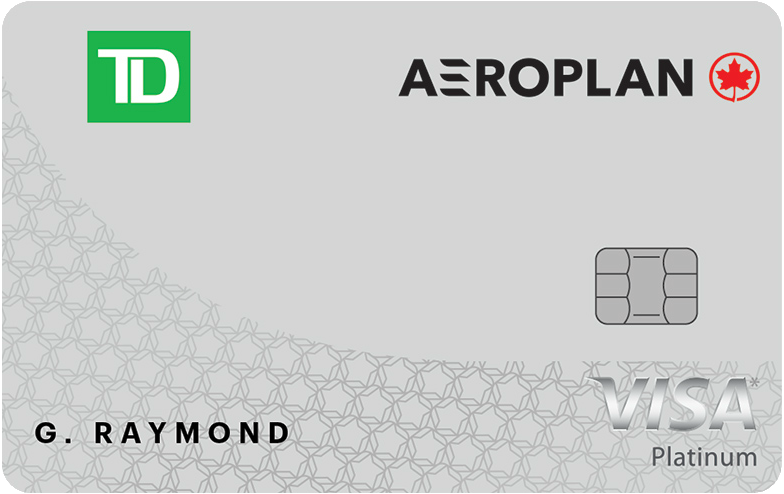
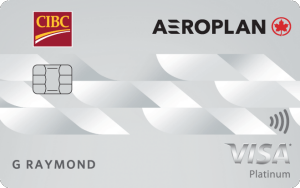


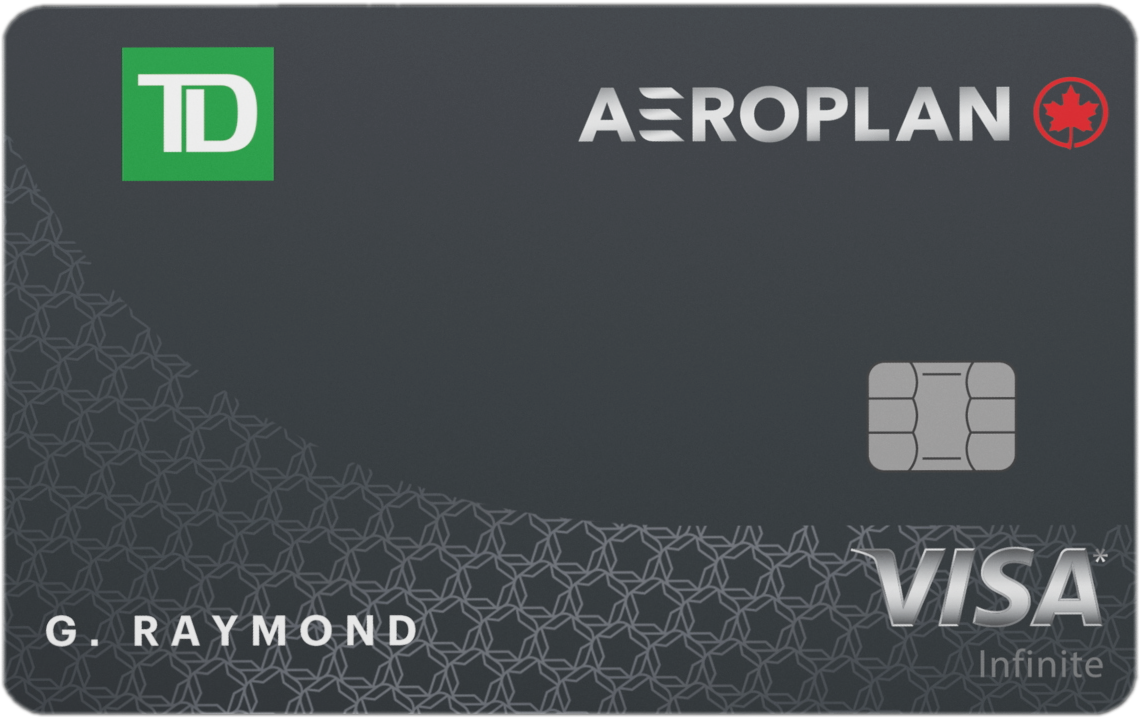
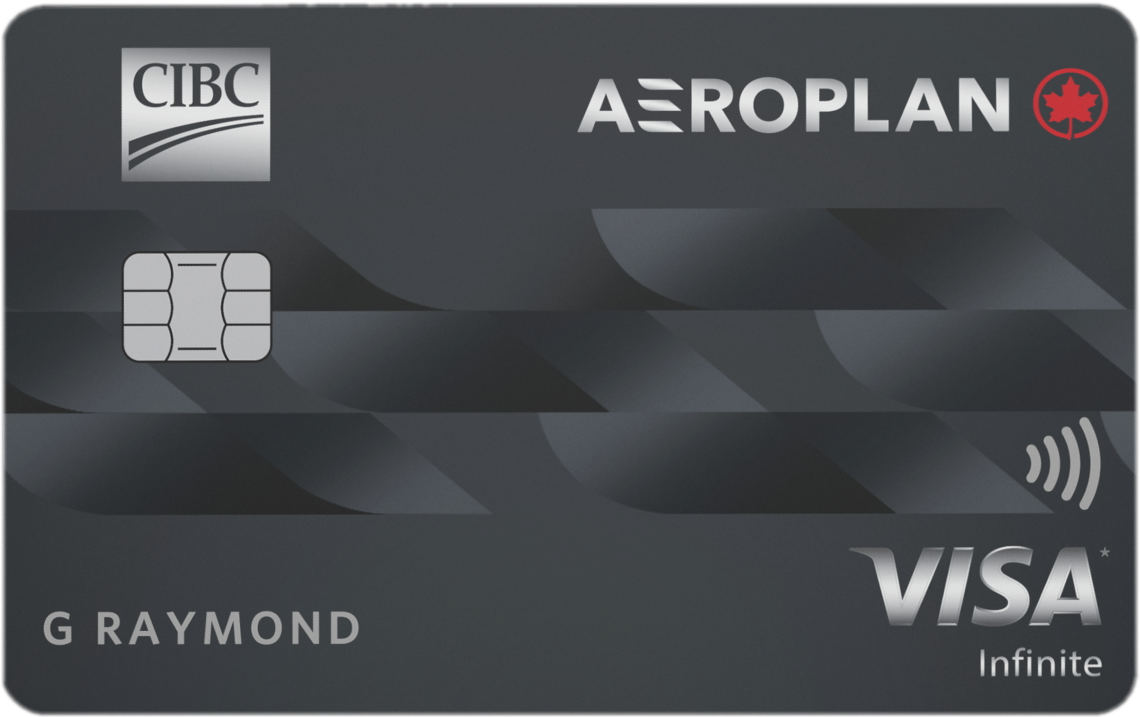
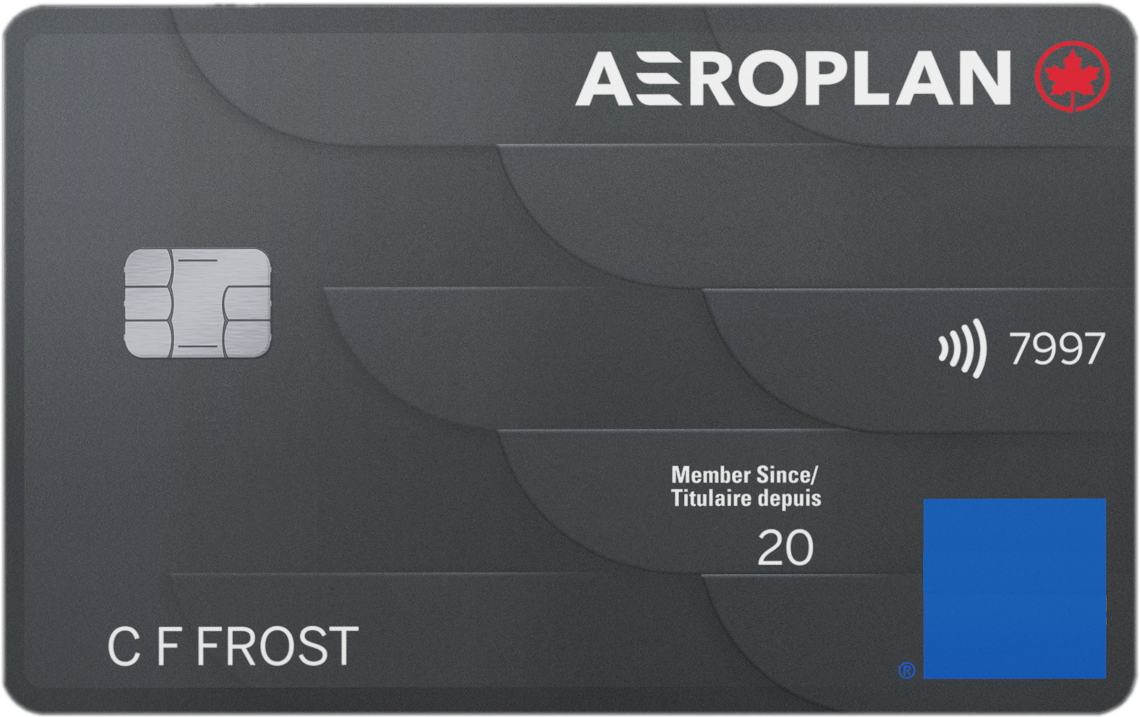
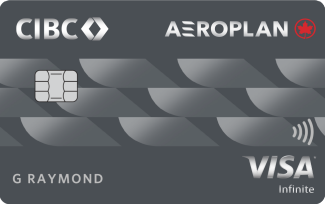
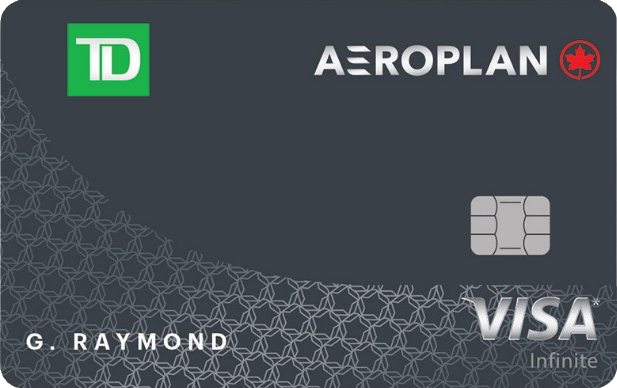

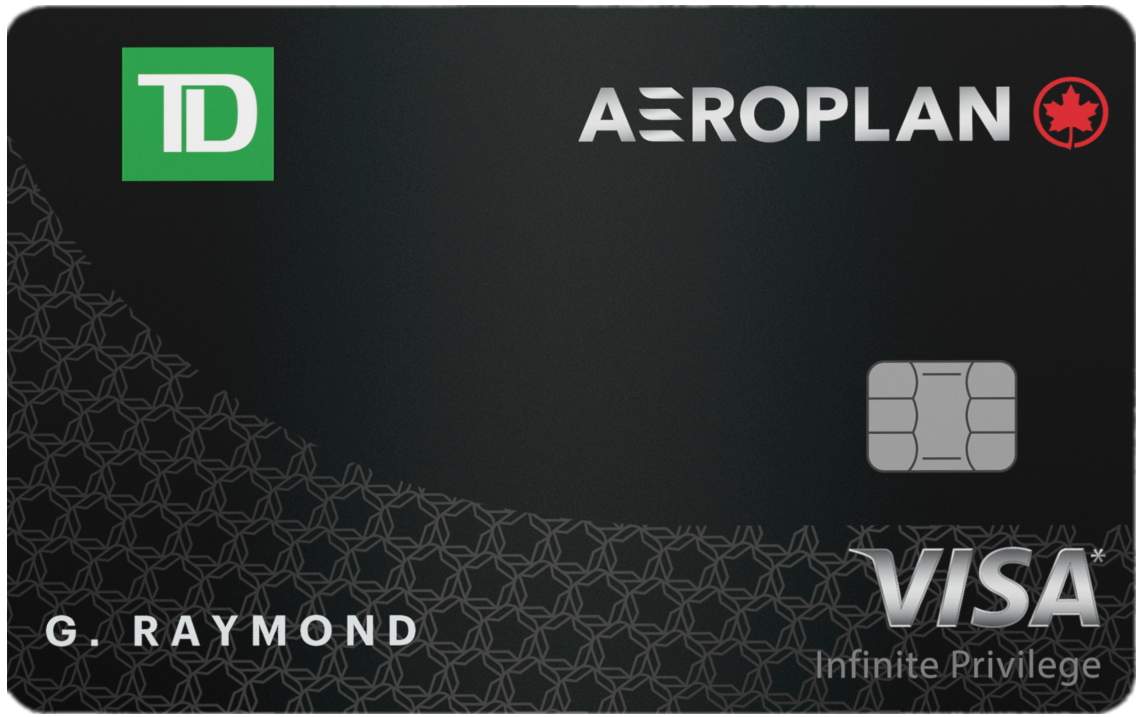
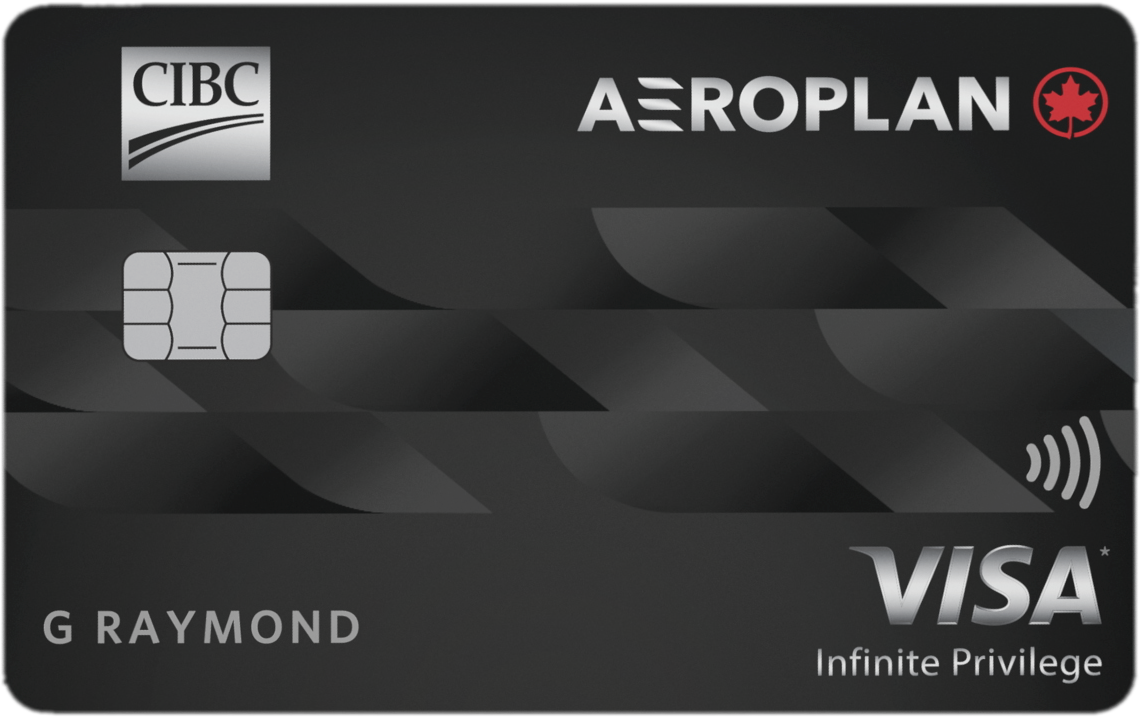
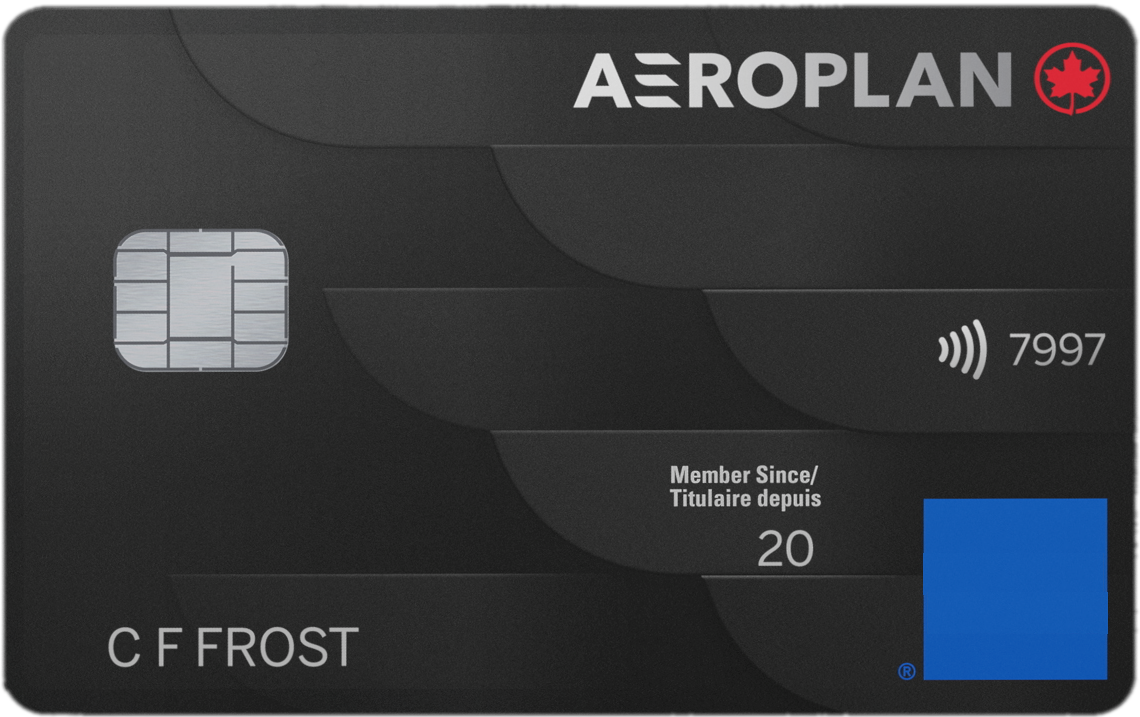
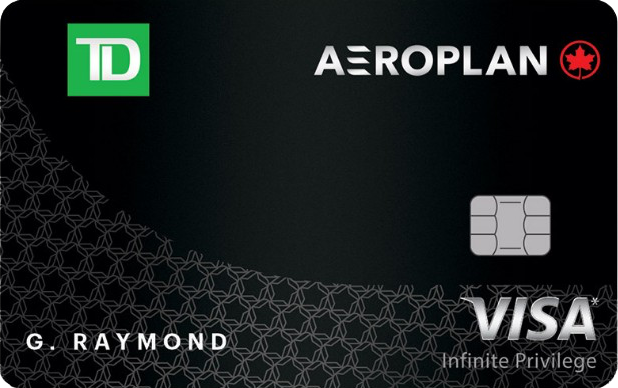

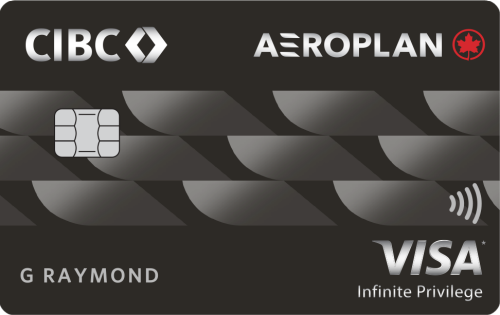
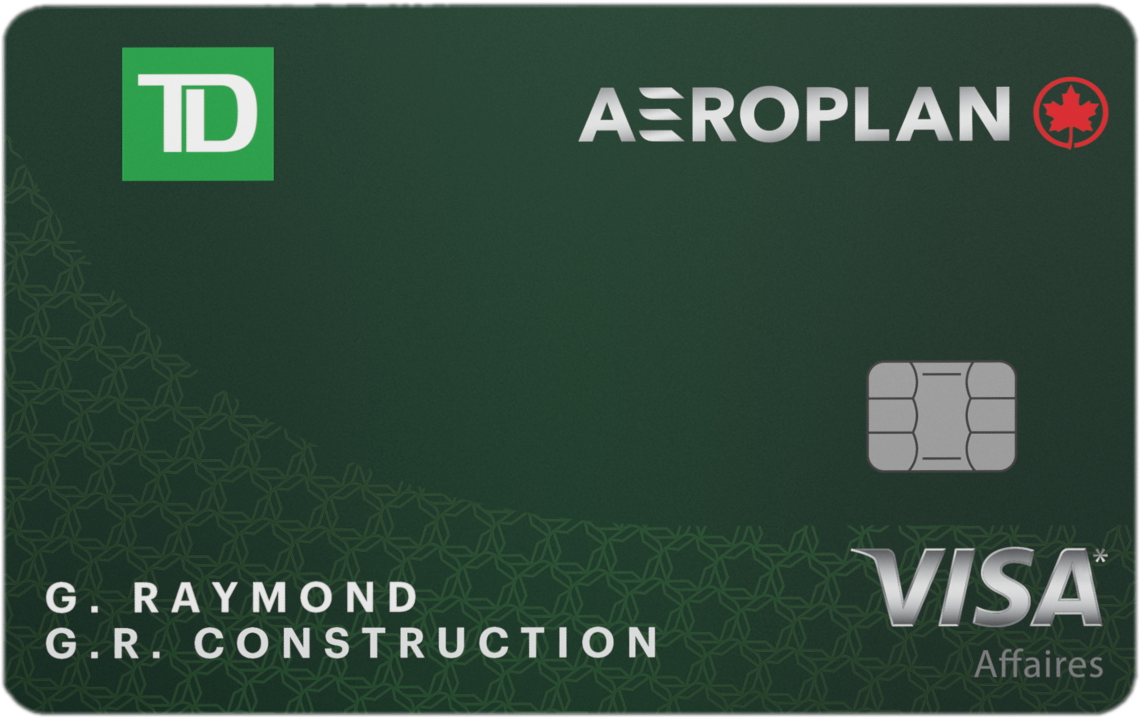
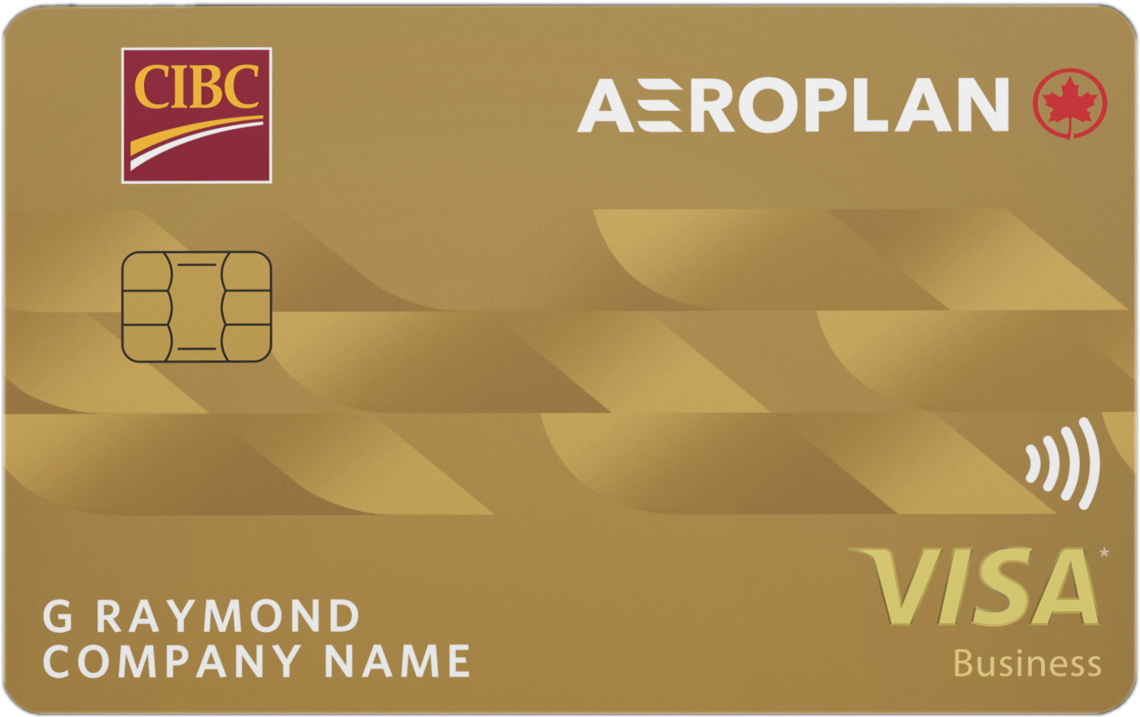

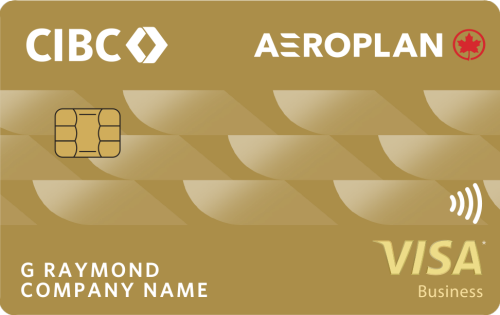






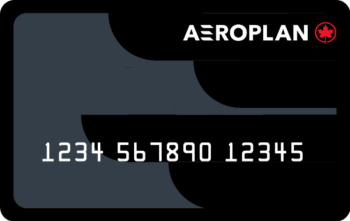

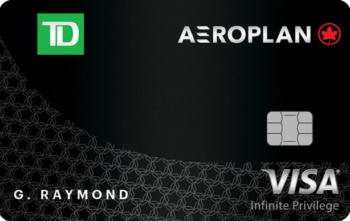





For the premium cards, have there been any changes to the amount of trip cost to charge before the medical and travel-related insurance takes effect? Evan posted 75% of the trip cost or redeemed AP points from two years ago, but CIBC is not required.
You forget some things with the TD vs CIBC Aeroplan
Visa Infinite Privilege cards. CIBC lets you waive up to 139 CAD annual fee on any card whereas TD only lets you on their regular infinite card fee waived. In both cases, if you have their top-tier chequing accounts. This matters for people that just want one premium card and are willing to pay the year 599 fee. Sure maybe the welcome bonus for CIBC is less but long term it makes more sense. All CIBC cards also get -3 cents off every liter of gas at Ultramar gas stations and up to -10 cents after buying a certain amount of gas and sometimes there are -7 cents off during car wash promos. Why this matters some small businesses or frequent travelers, car renters, need to buy a lot of gas, and the savings will add up combined with the EDQ possibilities… you get 1.5 EDQ and Aeroplan points on gas fill-ups… but the TD Aeroplan card just doesn’t make sense for most for gas. Sometimes I fill up at Shell but it’s best to use BMO Mastercard there and occasionally you get a gas discount if you shop a lot at IGA for groceries.. as for ESSO the best card is using the Presidents Choice Mastercard but there are no longer any fuel discounts as was the case with the previous ESSO program and Aeroplan is no longer partnered.. so that leaves PetroCanada which has their own point system but they are partnered with RBC which does give a bonus of petro points and Avion points and 3cent discount… so it’s best to use RBC cards there preferably one that gives the Avion points because no bonus WestJet dollars are given… so if one buys gas at ESSO, PETRO CANADA or SHELL they have all card partnerships that would be better than using your TD credit card… now that leaves Ultramar and that makes the clear choice winner CIBC Aeroplan card for the benefits at Ultramar. When would I ever use the TD card to fill up with gas? Maybe travel overseas or at mom and pop gas station.. maybe Irving or if one buys gas on a native reserve which usually has very cheap prices and often accepts VISA & Mastercard but no AMX… that’s the only time I have used it my TD card for gas. If purchasing gas CIBC is the clear winner for that Ultramar partnership. The way the CIBC, TD, and AMX cards work is encouraging members to hold them for longer or else those carried over SQM disappear upon cancellation of the card so that’s something else to think about if holding a card long-term. The better card optimization for those that drive a lot and bank with TD and CIBC cardholders is to go with the CIBC Aeroplan card for gas purchases and the TD Cash Back Infinite card for the Included Road Side Assistance… the only other card with that is the Canadian Tire WE Mastercard which can be a pain to get for some. Now the reverse where the TD Privilege card is better is the TD Starbucks partnership which gives bonus Aeroplan points and stars for using it at Starbucks.
somewhere i saw a message showing the points you could accumulate by applying for 3 different TD cards – but i can’t find it! can someone guide me there. awesome info!
Just a couple of things I noticed for the Premium cards:
1) On the TD Visa Infinite Privilege, up to 3 supplementary cardholders also get a $100 Nexus credit;
2) On the CIBC Visa Infinite Privilege, I don’t believe there is a requirement for a minimum amount of the cost of the trip to be charged to the card for trip cancellation and trip interruption coverage to be valid, while on the TD Visa Infinite Privilege, I believe there is a minimum of 75% of the cost of the trip needs to be either charged to the card or via redeemed AP points. (For flight/trip delay, baggage delay and lost baggage coverage, both cards require at least 75% of the cost of the trip to be either charged to the card or via AP points.)
Hi Ricky, nice post. Do these account for the referral offers? For example, the AMEX Aeroplan card has a slightly better offer for referrals (sent link through your contact form.):
Earn Up To 20,000 Aeroplan points
New American Express Aeroplan Cardmembers can earn up to 20,000 Welcome Bonus Aeroplan points and a Bonus Buddy Pass. Earn 14,000 Aeroplan points2 and a Bonus Buddy Pass for an eligible round-trip flight within North America1 after spending $1,500 in purchases within the first 3 months of Cardmembership. Plus, you can also earn 1,000 Aeroplan points for each monthly billing period in which you spend $500 in purchases on your Card for the first six months of Cardmembership. That could add up to 6,000 Aeroplan points.2 Offer subject to change at any time.
Thanks for bringing this to my attention – I wasn’t aware. I’ll update the card’s information right away.
Hi Ricky! Just wondering if the $100 statement credit (after spending $5000) on the Amex Reserve is a temporary perk with this card? Thanks.
It’s marketed as part of the signup bonus, and yes, it only applies during the first year. I could see the $100 credit being removed in the future once the Aeroplan Reserve is more cemented among the Amex credit card lineup, rather than a new product with lots of focus on acquisitions.
does the American Express reserve allow one complimentary guest into the maple leaf lounge? I know CIBC and TD charge a fee for guest. Thanks!
I was able to enter two guests at mapple lounge with my amex reserve free of charge
I don’t believe so; you’d need to pay the guest access fee to bring in a guest.
The CIBC VIP card is actually allowing one free guest as a promotional benefit until November 7, 2021.
I was disappointed with the Amex Reserve to see that rollover Status Qualifying Miles only apply if you have Aeroplan Elite Status as of now. So someone with no status now cannot add spend SQMs (1000 per $5000 spend) to next year’s total – when most flying will hopefully get going, at least internationally. While I’m sure there are Elites that might get the card, it doesn’t provide us non-Elites any incentive to put much of a spend on it, other than to get the bonus. My Plat gets 3x on restaurants and Gold gets 2x on gas, drug store and grocery. A missed opportunity IMO.
Ricky, Are you sure all three CIBC, TD and Amex Premium cards have the rollover SQM and eUpgrade benefit? CIBC and TD do not advertise this on their websites as fat as I can see. Thanks !
For TD SQM and eUpgrade rollover, see: https://www.td.com/ca/en/personal-banking/documents/pdf/credit-cards/Aeroplan_Visa_Infinite_Privilege_Air_Canada_Benefits_Guide.pdf
Positive. Might be buried in the terms and conditions though, as it might not be the most widely-appealing benefit to advertise.
You have the TD visa Green with 1,000,000 coverage, but the CIBC has 5,000,000 coverage.. is the days covered that much more valuable? How did you weigh this item?
This was a matter of my own judgment as there’s obviously a trade-off between the higher coverage amount and the longer coverage period.
Personally I’d value the longer period more: having coverage on every day for my extended trip gives me more peace of mind than $5MM vs. $1MM. If you tend to only take shorter trips of 1–2 weeks, then you might find greater value in the CIBC card’s higher coverage amount.
Do you think current Aeroplan credit card holders should cancel their card so that they can get sign-up bonuses as new users?
Well, if someone wants to earn signup bonuses, they won’t be eligible for them as current cardholders.
Thanks for your reply.
What I meant to ask was: do you think the current cards and the rebranded cards will be treated as different products in terms of sign-up bonus eligibility? and do you think the bonus will be so good that they justify going through the hassle?
There are articles on the fee is going to increase to $120 so it’d better if the cards can cover the new fee entirely. Also I believe if you have a TD unlimited bank account, the TD Aeroplan infinite annual fee is waived which is a nice perk.
**Nexus fee to $120
Hi Ricky,
On your Visa Infinite Comparison chart, it lists Air Canada and Air Canada Vacation category as 1 point per $, I believe it should be 1.5 points.
With priority airport service in Vancouver is using Vancouver Airport Authority FasTrack. Is that same as having Nexus and using the Nexus entrance?
I think CIBCs supplementary card fee for the Privilege is $149
Gotchu
Hi Ricky, thanks for sharing all this amazing, compiled information for us! I currently have the TD Core card FYF and don’t plan to keep it after the year. With the new rules kicking in in November, do you know if existing customers who are still in their first year are eligible for the NEXUS credit? Thanks!
Yes, you should be eligible to use the $100 NEXUS credit as soon as the November 8 transition happens.
Thanks Ricky – I applied and the rebate was posted the next business day. With 730 days to complete the interview process, hopefully I’ll be able to activate it closer to the post-COVID travel season. Cheers and happy 2021!
Amex does seem to be trying to make inroads on any of their Aeroplan cards. I don’t see the incentive to change cards from the present card. Unless the welcome bonus makes up for it.
Hoping Amex surprises us at the end. Otherwise TD business is the way to go.
CIBC has 2 different business aeroplan credit cards. you did not do proper comparison.
Do you think Amex will amp up the Platinum card with a refreshed welcome offer and/or other features? That might make it more attractive for many people, compared to the above cards.
Sorry, I checked the TD card again – maybe security is the thing you get, but that’s not very useful if you’re a NEXUS card holder anyway. P.S. TD Premium gives you a guest in the lounge too.
It’s Priority Security and parking discounts at select airports. I’ll add a link to the Visa Infinite Privilege website in the article; it turns out YTZ and YOW get those benefits too.
The TD premium card gives you guest access, but it isn’t free. See the fine print #3 here: https://www.td.com/ca/en/personal-banking/documents/pdf/credit-cards/Aeroplan_Visa_Infinite_Privilege_Air_Canada_Benefits_Guide.pdf
Many many blogs have this wrong, and I do think it’s misleading to hide the fee in the footnote. Makes you wonder what other published and unpublished surprises are in store for us.
Ricky, what are the “priority” benefits at YYZ / YUL/ YVR you would get you don’t get elsewhere with priority services in general? I think with the premium cards you’re already getting priority check in, baggage, security and zone 2?